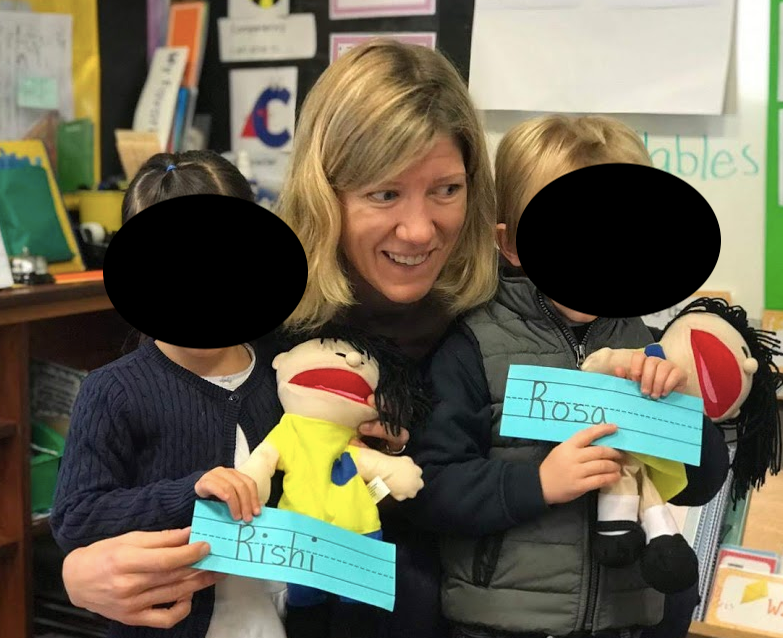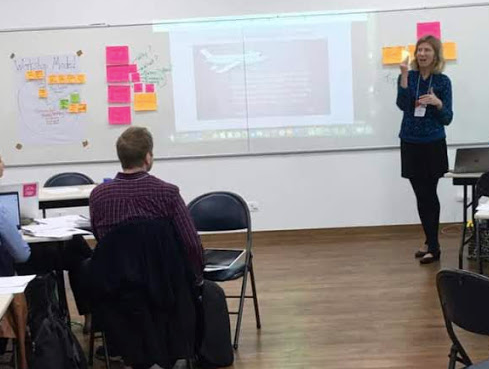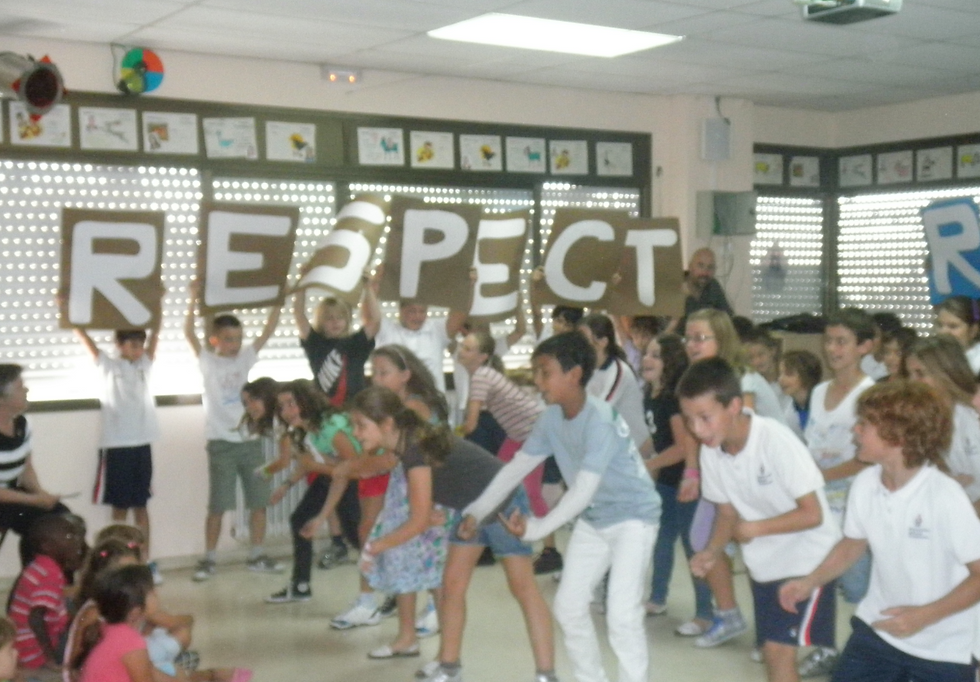Heather Onderick
A strategic, thoughtful and courageous learner and leader.
Some Roles & Stories




2021- Now
United School of Tokyo,
K-8 Director of Learning and Head of Middle School
Transformational Leadership
I believe in the power of individuals to work together collaboratively to construct possibility and change. At UST, I have set up teacher led PLCs to reinforce and support the strategic planning goals. These PLCs have had big impact on the UST community in a short time. After a year of action research, one PLC developed a school wide common language and approach to student goal setting. Another PLC developed teacher and student writing toolkits to help support students during the newly implemented Writing Workshop. Another example was, as we work towards the strategic goal of increasing student ownership in learning, teachers have worked throughout each term, starting with generating ideas for approaches to learning. The teachers then vertically articulated this vision and shared out strategies to evaluate and assess the approaches in classroom. Finally, students voices need to heard and channeled, through mission and vision revitalization, Approaches to learning reflections, House game challenges and more, a priority for me as a leader is making sure the students voices are included in all that we do! All of these efforts aim to continuously empower learning for teachers just like we are doing for students.

Student Centered Coaching To the Max
K-12 Learning Coach, ES Literacy Coordinator
The summer before I started working at Lincoln, I was invited to join a graduate certificate course in Student Centered Coaching. During my coaching cohort, we had read and utilized a number of Diane Sweeney's tools, but never had I done a full blow cycle using her model and now that I have, I will never really go back. One of my first coaching cycles at Lincoln was with a K5 teacher on their first reading unit of the year. We immediately got our hands dirty, setting learning targets, collecting data, and quickly responding to the various needs we had in the classroom. As we continued to go through the cycle, which was a gradual release model of me doing demo lessons, then co-teaching and eventually using a variety of coaching moves, we grew together immensely. We learned about what worked and didn't. We took risks trying a number of different learning engagements: centers, parallel teaching, ability groups and whole group modeling. Our findings not only elevated student learning but also gave way to an important early elementary conversation about the need for a resource and the time to explicitly teach phonics. To me the truth is real, student centered coaching calls on teachers and coaches to work together to provide personalized learning feedback to what is relevant to the learner or group of learners just in time and in response to student progress with the learning targets. Flexibility is key but teachers will never have to ask the question, "Are our students coming first?" with employment of this practice.
2018-20

International School of Kuala Lumpur:
ES Learning Specialist/ Literacy Coach
Starting Strong...
In my three years at ISKL, I worked hard towards whole school reform particularly in the area of English Language Arts. I started the process of implementing the CCSS ELA standards by working with teachers on the unpacking the concepts, skills, big ideas and creating student friendly "I can" statements. During this unpacking, I worked on creating unit plans and instructional plans for students based off the Lucy Calkins UOS and other resources, such as Jennifer Serravallo's Reading Strategies and Writing Strategies books. 6 teachers launched the pilot of these units in my first year of CCSS implementation and by the end of the year more than 50% (15 members) of our staff were using them. In the second year of implementation, I worked with teachers to truly understand the unit plans through connecting the knowledge and skills to the teaching points in the instructional plans and also, to doing writing calibrations across writing genres to develop common expectations around assessment. I supported EAL and LR teachers to highlight and inform classroom teachers of instructional strategies that would support our literacy units during collaborative meetings. All the while, trying to get the parent community onboard to through the development of a parent learning connection website and multiple parent workshops on our balanced literacy program. Throughout the whole process, I have been actively working with teachers at different entry points to support the learning in their classroom in a way that best helps their students and also helps teachers think smarter, not harder. ISKL has taught me to value and respect where teachers are when it comes to new implementations. Through Adaptive schools training and having to regularly facilitate meetings as a literacy coach and across other content areas, I feel comfortable in formal and informal meetings, using protocols, redirecting and having challenging and often divergent conversations about learning.
2015-2018
2011-2015
American School of Barcelona:
Humanities HOD, teacher, ES Classroom teacher
Teching It To the Next Level...
One of my favorite units while I taught 6th grade was our Social Issues Book Clubs unit. Students were energized by the issues that were prevalent in their daily lives and they loved the social aspect of being able to discuss literature that was both timely and relevant to their existence. It was also a time where as a teacher, I got to geek out on my passion for technology and literacy and play with some formative assessments. During this unit, students created soundtracks and had to connect the songs they chose to the themes and events in their texts. Additionally, they created a technology project of their choice about the themes in their book supporting their thinking with text evidence. One of the best outcomes was a collaboration between two friends who were in separate Humanities sections, working together to create songs on the Google app, Audiotool, about the text Fever by Laurie Halls Anderson. Teaching MS Humanities allowed me to become a better teacher and integrate my strengths as a tech nerd, curriculum designer and literature lover.





